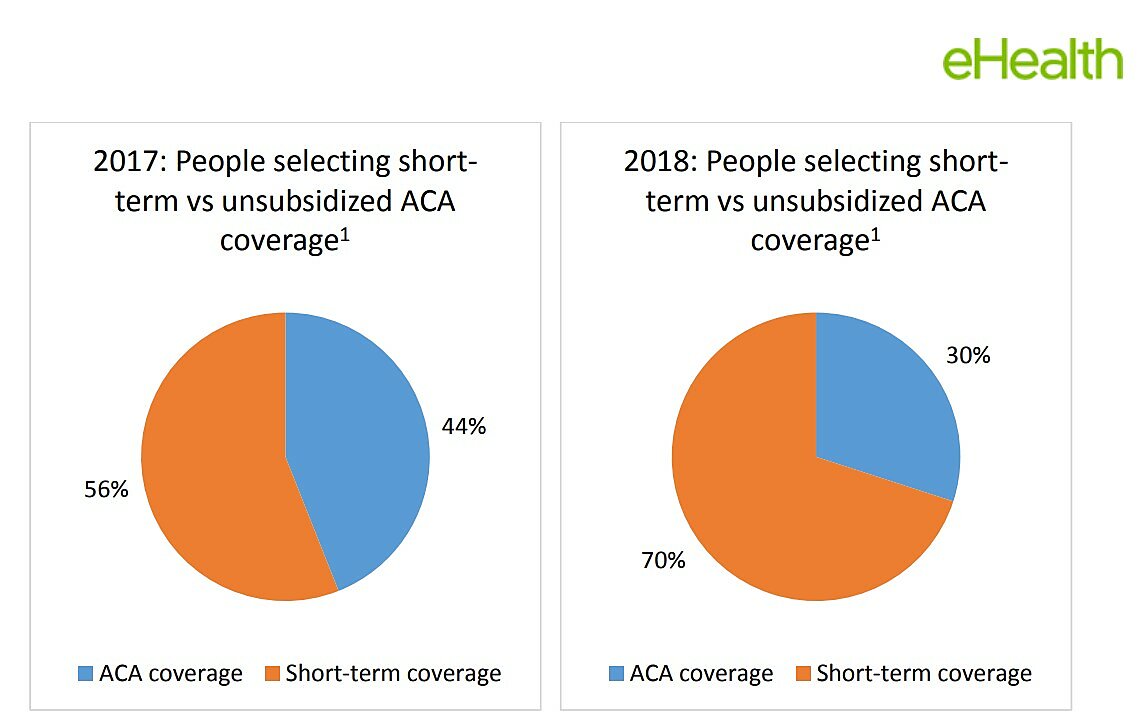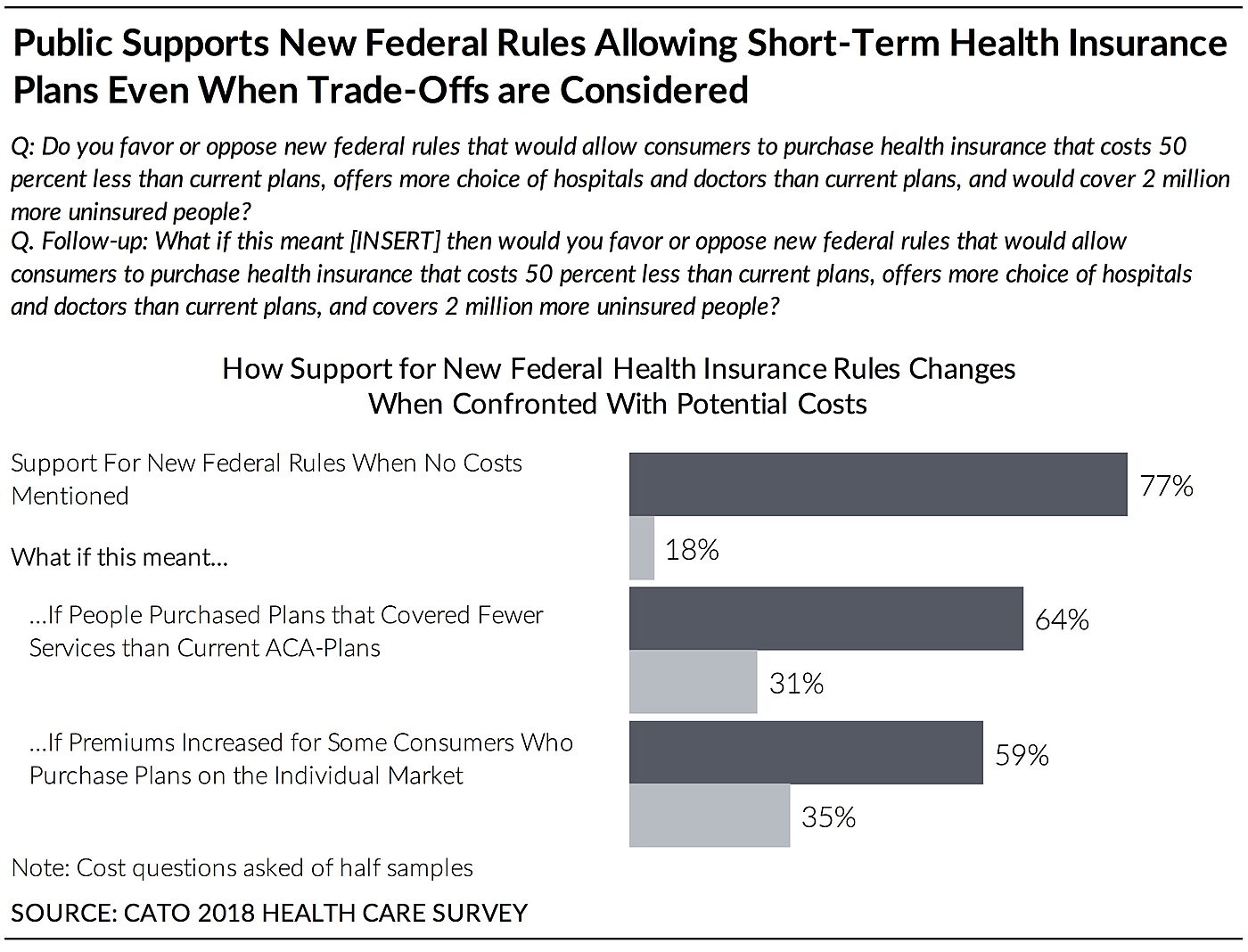The Illinois legislature has enacted a law, over the veto of Gov. Bruce Rauner (R), that will strip consumer protections from patients with preexisting conditions, throw them out of their health plans, deny them health care, and expose them to bankruptcy. Naturally, it did so in the name of…helping patients with preexisting conditions.
The new law imposes limits on so-called “short-term” health plans. Federal law exempts short-term plans from ObamaCare’s costly and punitive health insurance regulations. As a result, short-term plans allow enrollees to purchase only the coverage they value, frequently cost half as much as ObamaCare plans, and offer broader choice of providers than ObamaCare plans. Thanks to new federal rules, short-term plans can last up to 12 months, be renewed for up to 36 months, and can enable enrollees who fall ill to keep paying low, healthy-person premiums indefinitely, making access to care more secure for the sick. Critics acknowledge the new rules could extend health insurance to 2 million previously uninsured Americans.
Consumers appear to value the broader choices that the new rules offer. The web site eHealth reports that the share of unsubsidized insurance purchasers who chose a short-term plan over an ObamaCare plan rose from 56 percent during the last enrollment period to 70 percent during this enrollment period. (See graph.)
Voters appear to believe the benefits of these new rules outweigh the costs. Polling shows voters support the new rules by nearly a two-to-one ratio–even if purchasers choose less coverage than ObamaCare requires, and even if ObamaCare premiums rise as a result. (See chart nearby.) There is reason to believe the new rules will reduce ObamaCare premiums. (See below.)
Illinois legislators, responding to critics who complain short-term plans are “junk” insurance, have decreed that short-term plans can last no longer than six months and that enrollees whose short-term plans expire must wait 60 days before purchasing a subsequent plan. The Sargent Shriver National Center on Poverty Law tweeted about the new law, “GREAT NEWS! SB1737 is law, and Illinois will now protect healthcare consumers with pre-existing conditions.”
That is exactly backward. The new Illinois law does not protect patients with preexisting conditions. It does not outlaw “junk” insurance. It creates junk insurance by taking protections away from short-term plan enrollees and exposing patients with preexisting conditions to denied care and bankruptcy.
Under prior law, short-term plans could provide many Illinois residents with seamless coverage. Residents could purchase short-term plans that could cover them indefinitely, but at least until the next ObamaCare open-enrollment period, at which point they could enroll in an ObamaCare plan without facing medical underwriting or denials of coverage.
The new law outlaws short-term plans that last more than six months. Now, by law, short-term plan enrollees who develop cancer or other expensive illnesses will lose that coverage when their plan reaches the six-month limit. This ban will not affect healthy consumers. When their six-month plans expire, healthy consumers can just wait the required 60 days and purchase a new six-month plan. The ban will instead hurt patients with preexisting conditions–specifically, those who fall ill while enrolled in a short-term plan or during the 60-day waiting period. The new law will throw those patients out of their plans, leaving them with preexisting conditions and no health insurance at all for up to 12 months.
As a direct result of the new law:
- Any Illinois resident who purchases a short-term plan on January 1, 2019 and subsequently gets a cancer diagnosis will lose that coverage on June 29 and face six months of expensive medical bills with no coverage. She will not be able to obtain a new short-term plan, because her cancer will be a preexisting condition. She also will not be able to get coverage through ObamaCare for six months–i.e., until January 1, 2020. Yes, ObamaCare prohibits insurers from denying coverage on the basis of preexisting conditions, but it also generally denies coverage to everyone outside of a six-week open-enrollment period at the end of each year.
- The same fate will befall any Illinois resident who gets a cancer diagnosis during the 60-day waiting period. By law, they will face months and months of expensive medical bills with no coverage. They will be unable to purchase another short-term plan, and they will be locked out of ObamaCare.
This is exactly what happened to Jeanne Balvin. Similar rules imposed by the Obama administration threw Balvin out of her short-term plan, leaving her with $95,000 in medical bills and no insurance to help pay them. (The new federal rules supersede the Obama-era rules.)
Had Illinois legislators just done nothing, or even just upheld Rauner’s veto, short-term plans could have covered Illinois residents throughout ObamaCare’s entire coverage-denial period. Instead, Illinoisans with preexisting conditions will face months and months of expensive medical bills with no coverage at all.
This is perverse. Illinois legislators knew that canceling short-term plans hurts patients with preexisting conditions. We know they knew, because they included a provision in the new law that forbids insurers from canceling short-term plans “before the expiration date in the policy, except in cases of nonpayment of premiums, fraud,” or at the option of the enrollee. And yet the legislature will now rescind short-term plans from patients with preexisting conditions within six months of their diagnosis, no matter how much human suffering it may cause.
Supporters claim that crippling short-term plans is necessary to protect patients with preexisting conditions. If short-term plans offer lower-cost coverage to healthy consumers, they argue, healthy consumers will flee ObamaCare plans. ObamaCare premiums would then rise to the point of threatening ObamaCare’s economic and/or political viability, thereby threatening access to care for patients with preexisting conditions currently enrolled in ObamaCare plans. Among the many flaws in this argument is the fact that short-term plans can actually reduce ObamaCare premiums by keeping expensive patients out of ObamaCare’s risk pools. The new federal rules allow short-term plan enrollees to purchase “renewal guarantees” that give them the right to keep purchasing short-term plans at low, healthy-person premiums even after they develop expensive medical conditions. Short-term plans can thus reduce ObamaCare premiums by keeping expensive patients out of those risk pools, just as the pre-ObamaCare individual market kept many expensive patients out of state high-risk pools. The presumed harms that more flexible short-term plans could inflict on patients with preexising conditions in ObamaCare plans are attenuated and uncertain. The harms that the Illinois law will inflict on patients with preexisting conditions who are enrolled in short-term plans are definite, immediate, and concrete.
There is no way to dress up laws restricting short-term plans as anything other than government rationing of care to the sick. The activists and politicians who supported this law are not patient advocates. They are callous ideologues who are willing to deny care to sick patients for the sake of protecting ObamaCare.


